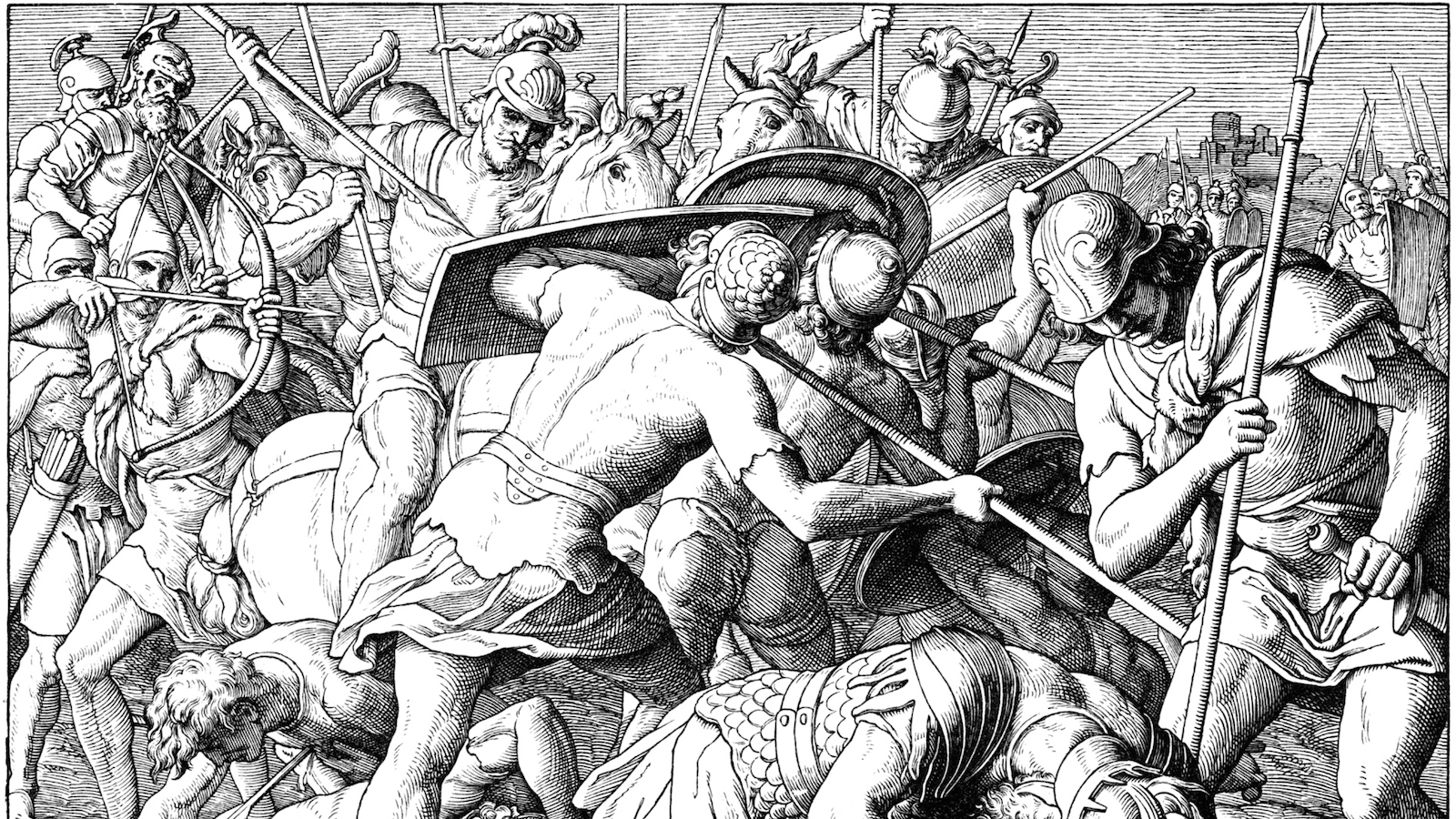Gog and Magog refers to the enemies against whom God will wage an apocalyptic war at the dawn of the messianic age. The wars of Gog and Magog have come to be understood as essential to the Jewish eschatological vision of the end of days, a final battle between good and evil that will usher in a period of eternal peace.
The origins of this belief lie in the prophecy of Ezekiel, who identifies Gog as a prince and his land as Magog. (The only earlier biblical reference to Magog is in Genesis, which identifies Magog as one of the descendants of Japheth, a son of Noah.) According to the prophecy contained in the 38th and 39th chapters of the Book of Ezekiel, on a “distant day” when the Jewish people are living secure in Israel, Gog will invade Israel and God will furiously retaliate against them. The invaders will be destroyed and the Jews will spend months burying the dead. Repeatedly God declares that through the battle “the nations shall know that I the Lord am holy in Israel.” In its wake, Ezekiel promises the restoration of the descendants of Jacob, the Jewish exiles will be gathered back to their land, and never again will God’s face be hidden from the Jewish people.
The wars of Gog and Magog, as the prophecy came to be referred to in later sources, are part of a larger belief that the messianic age will be preceded by a period of great suffering and upheaval — the so-called “birth pangs of the Messiah.” But in general, belief in the messianic age, while clearly part of Jewish belief and tradition, are not discussed in great detail in ancient rabbinic sources.
Maimonides, who included belief in the coming of the Messiah as one of this 13 principles of the Jewish faith, nevertheless stated that the details of these future events are not fundamental to the religion and that one should not dwell on them, as their particulars were unknown even to the great sages. “Our sages have said that the spirit of those who calculate the Ends will expire,” Maimonides wrote in the Mishneh Torah. “Rather, one is to (simply) wait and believe in the principle of this matter, as we have explained.”
With your help, My Jewish Learning can provide endless opportunities for learning, connection and discovery.
Despite this warning, at various points in Jewish history, Gog and Magog have been identified with different global powers whose conflicts were believed — or hoped — to usher in the messianic age. In the 19th century, some Hasidic leaders believed the Napoleonic wars against Russia were the war against Gog and Magog. Nevertheless, as with most issues relating to the Messiah and the End of Days, contemporary Jewish theology does not dwell much on the matter.
Hasidic
Pronounced: khah-SID-ik, Origin: Hebrew, a stream within ultra-Orthodox Judaism that grew out of an 18th-century mystical revival movement.



